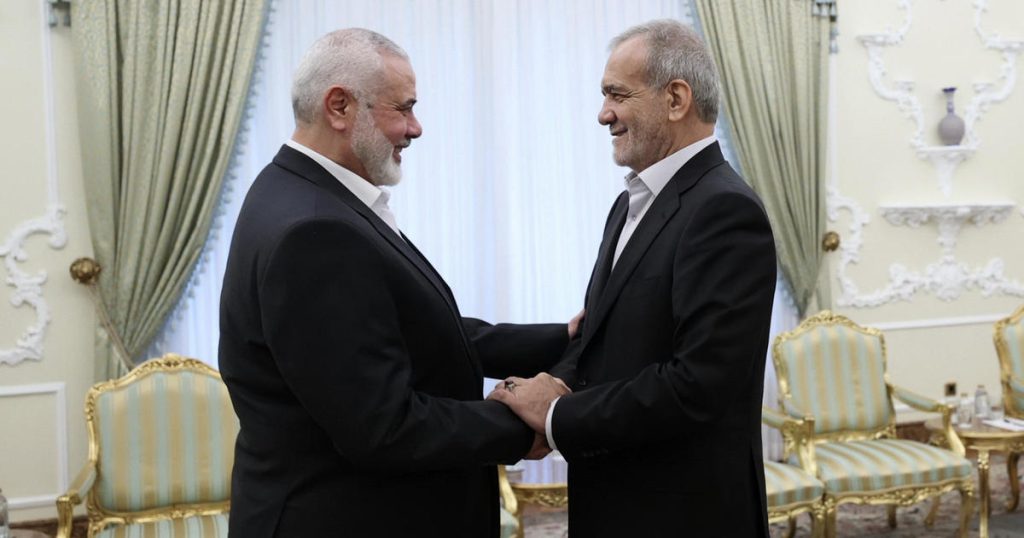There was an incident in which Hamas leader Ismail Haniyeh was assassinated in Tehran, with no immediate claim of responsibility. Iran’s paramilitary Revolutionary Guard reported his death, and suspicions fell on Israel, which has previously vowed to kill Haniyeh and other Hamas leaders. The incident took place following an attack by Hamas on Israel that resulted in casualties and hostages. This assassination is believed to have been carried out by Israel’s Mossad intelligence agency, which has a history of targeting individuals associated with Iran’s atomic program.
Israeli officials have not made any immediate comments regarding the incident, as they typically do not address assassinations carried out by their intelligence agency. Israel has been accused of running a longstanding campaign of assassinations, including targeting Iranian nuclear scientists. The conflict between Israel and Hamas has resulted in numerous casualties over the years, with more than 39,360 Palestinians killed and over 90,900 wounded, according to the Gaza Health Ministry.
The assassination of Hamas leader Ismail Haniyeh has sparked tensions and raised concerns about potential retaliation from Hamas. The incident has been met with suspicion and accusations towards Israel, which has a history of carrying out targeted assassinations against its enemies. The conflict between Israel and Hamas has escalated in recent years, resulting in numerous casualties on both sides. The ongoing violence has fueled animosity and deepened divisions between the two parties.
The assassination of Ismail Haniyeh has once again brought international attention to the conflict between Israel and Hamas. The incident has raised questions about the legality and morality of targeted assassinations and the use of violence in resolving conflicts. The ongoing violence in the region has led to a humanitarian crisis, with numerous casualties and widespread destruction. The international community has called for a peaceful resolution to the conflict and an end to the cycle of violence.
The assassination of Hamas leader Ismail Haniyeh in Tehran has further escalated tensions between Israel and Hamas. The incident has reignited concerns about the ongoing conflict and the potential for further violence. The assassination has been condemned by international leaders and human rights organizations, who have called for an end to targeted killings and a peaceful resolution to the conflict. The incident serves as a reminder of the complexities and challenges facing the region and the need for a comprehensive and sustainable solution to the conflict.
The assassination of Hamas leader Ismail Haniyeh in Tehran has once again highlighted the longstanding conflict between Israel and Hamas and the broader implications for regional stability. The incident has underscored the risks and consequences of targeted assassinations and the use of violence in resolving conflicts. The ongoing violence in the region has taken a toll on civilians and has deepened divisions between the two parties. The international community has a crucial role to play in facilitating dialogue and negotiations to address the root causes of the conflict and work towards a lasting peace.


